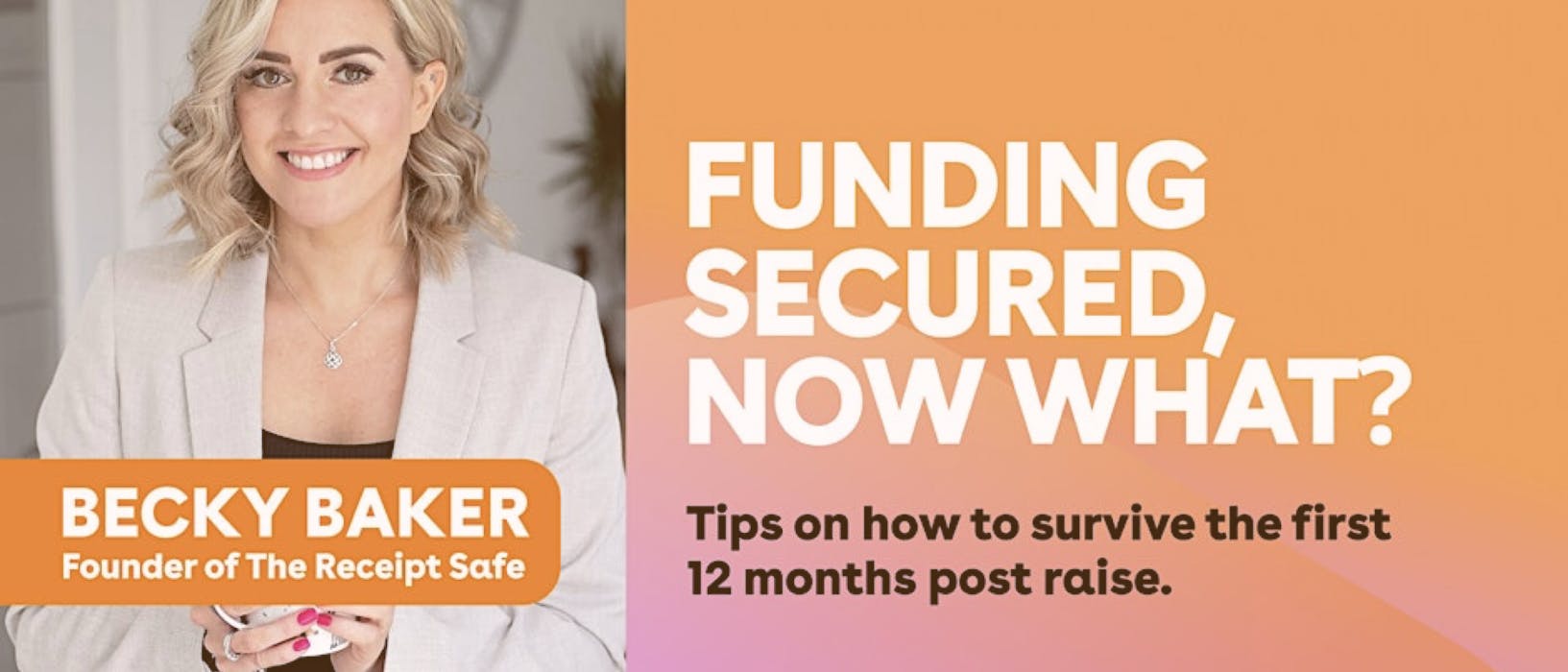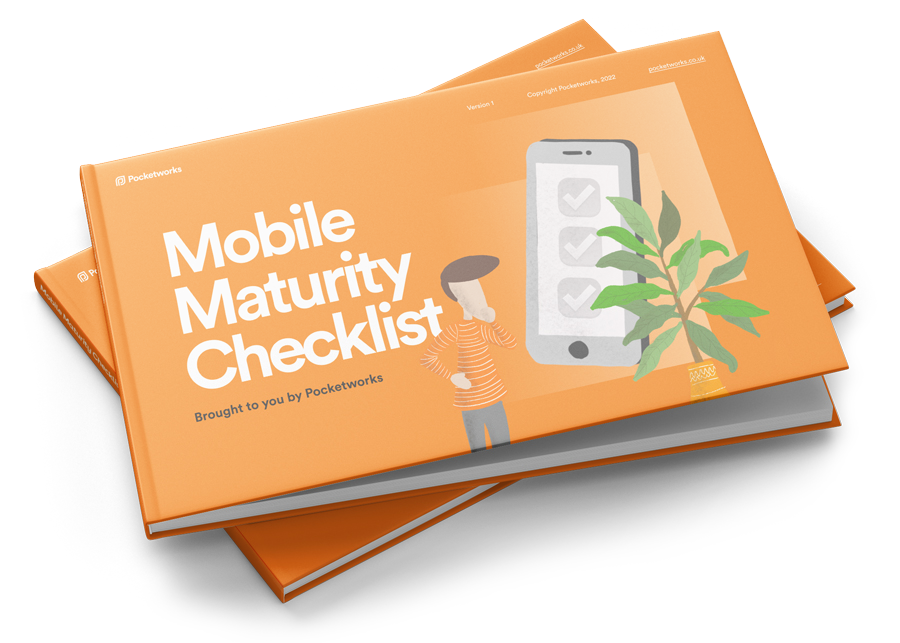If you didn’t attend our webinar for funded startup founders, fear not. This post shares some of the good stuff. In that webinar, we spoke to entrepreneur and app founder Becky Baker about her journey into the world of startups and what she’s learnt along the way.
How to survive the first 12 months post-raise
In this blog, Becky discusses the key lessons, tips, and advice for aspiring entrepreneurs who want to survive the first 12 months post-raise and build a successful start-up.
Don’t be afraid to ask questions
"Prior to launching my first start-up, I had never owned a business; no one in my family had owned a business, and it definitely wasn’t an aspiration of mine. I happily ticked along as a salaried employee, working in software product management and project management in the legal sector.
My leap into the start-up world was pure chance. I had a good idea, quit my job, and attended my first business accelerator.
With this being my first-ever business, I had no network. Everything was new and a steep learning curve - a complete standing start.
To overcome this, I was just honest and open and asked a lot (and lots) of questions. I didn’t pretend to know it all and tried to surround myself with the right people.”
Find the right investors for you
"The fundraising process was terrifying. I was trying to build a tech product, which is always expensive, and I don’t come from money. I had no choice but to raise investment.
To prepare, I took a business accelerator course. What I learned led to my first raise.
When trying to find early seed/pre-seed fundraising, you will typically be looking at Angel Investors (someone who invests their own money for a small stake in your business - think Dragon’s Den). If you don’t know people in those networks, knowing where to start can be very hard. Be aware that there are some bad actors in this space who will try to charge you for the opportunity to pitch to Angel Investors. This should not be the case for a legitimate network. Do your research and find a network that looks good for you and your business.
Putting together a great pitch is vital. People invest in people, and storytelling is an art form. Learn to tell your story.
You need to understand what matters, so try and talk to Angels beforehand. Find out what they want to see and work it into your pitch. It’s about de-risking and making it (and you) an exciting proposition. Investors are savvy and understand nothing is a sure thing, but you need to give them confidence that you are aware of the risks and have a plan to mitigate them.
If you’re offered funding, it can feel like a scary time. Don’t be afraid to do your due diligence on investors. Talk to other founders in their portfolio - what has their experience been like? Establish roles and boundaries - what involvement do you need from your investors?
Finally, don’t feel the pressure to ‘grow’ just for the sake of it. Use the money in a way that will make the most impact on your business and what you are trying to achieve (e.g., don’t hire lots of people or take fancy offices)."
Don’t rush the research phase
"Once you have your funding in place, the temptation is to leap into building your product in a rush to get it to market as soon as possible. One of the biggest lessons I’ve learned is that the research phase is vital and should not be rushed.
When you are so close to your start-up and vision, it can be incredibly difficult to be flexible and be willing to pivot to what research tells you. However, getting ‘product-market fit’ is the most important thing (this means having a product that meets the needs of a specific audience).
My advice is to take the time to invest in a solid phase of research. Don’t build until you have validated as much of your idea as you possibly can. It can be hard not to be biased, but good research will ultimately deliver a better product (even if it isn’t exactly what you initially envisioned).
Once you are live, be crystal clear about your metrics and what success looks like for your product. Keep checking in against these and don't be fooled by vanity metrics."

